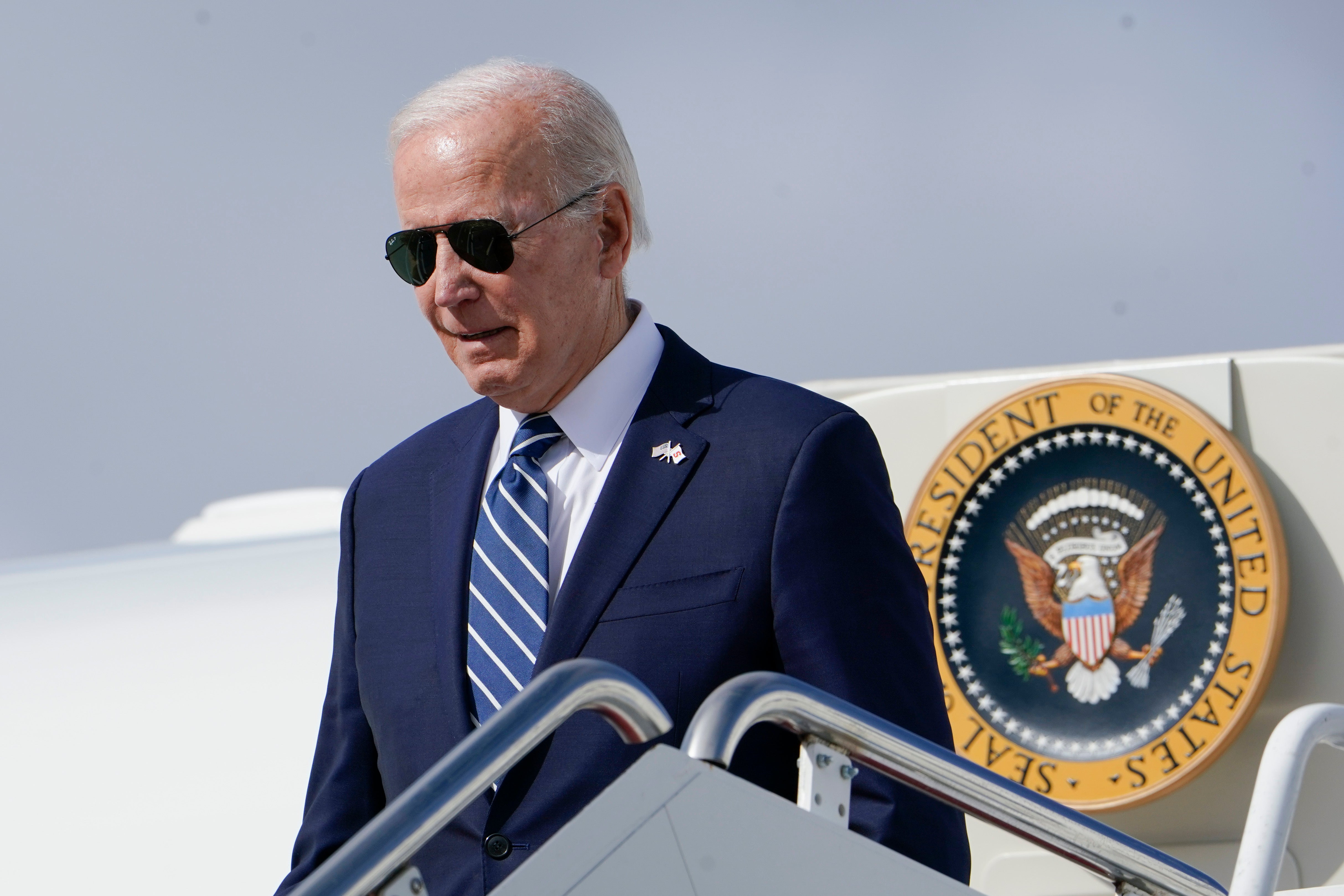Biden signs international climate deal on refrigerants
President Joe Biden has signed an international agreement that compels the United States and other countries to limit use of hydrofluorocarbons, highly potent greenhouse gases commonly used in refrigeration and air conditioning that are far more powerful than carbon dioxide

Your support helps us to tell the story
From reproductive rights to climate change to Big Tech, The Independent is on the ground when the story is developing. Whether it's investigating the financials of Elon Musk's pro-Trump PAC or producing our latest documentary, 'The A Word', which shines a light on the American women fighting for reproductive rights, we know how important it is to parse out the facts from the messaging.
At such a critical moment in US history, we need reporters on the ground. Your donation allows us to keep sending journalists to speak to both sides of the story.
The Independent is trusted by Americans across the entire political spectrum. And unlike many other quality news outlets, we choose not to lock Americans out of our reporting and analysis with paywalls. We believe quality journalism should be available to everyone, paid for by those who can afford it.
Your support makes all the difference.President Joe Biden on Thursday signed an international agreement that compels the United States and other countries to limit use of hydrofluorocarbons, highly potent greenhouse gases commonly used in refrigeration and air conditioning that are far more powerful than carbon dioxide.
The Senate ratified the so-called Kigali Amendment to the 1987 Montreal Protocol on ozone pollution last month in a rare bipartisan vote. The measure requires participating nations to phase down production and use of hydrofluorocarbons, also known as HFCs, by 85% over the next 14 years, as part of a global phaseout intended to slow climate change.
HFCs are considered a major driver of global warming. Nearly 200 nations reached a deal in 2016 in Kigali, Rwanda, to limit HFCs and find substitutes more friendly to the atmosphere. More than 130 nations, including China, India and Russia, have formally ratified the agreement, which scientists say could help the world avoid a half-degree Celsius of global warming.
Biden pledged to embrace the Kigali deal during the 2020 presidential campaign and submitted the agreement to the Senate last year. In a related action, the Environmental Protection Agency has issued a rule limiting U.S. production and use of HFCs in line with the Kigali agreement. The EPA rule followed a 2020 law passed by Congress authorizing a 15-year phaseout of HFCs in the U.S.
White House climate adviser Ali Zaidi said formal ratification of the Kigali agreement — with Biden's signature — “means the U.S. is all-in on reducing HFCs” and advancing global efforts to combat climate change.
The agreement should lead to tens of thousands of new jobs and billions of dollars in exports as clean technologies are developed to replace HFCs around the world, Zaidi said.
“It's a real boost for investments in these cleaner technologies'' — many of which have been developed in the U.S. — ”that also helps us tackle the climate crisis,'' he said in an interview.
Ratification of the amendment was supported by an unusual coalition that included major environmental and business groups, including the U.S. Chamber of Commerce.
”This is one of those truly rare things you get in the policy world where it is a win-win” for the environment and business, Chris Jahn, president and CEO of the American Chemistry Council, an industry group, said after the Senate vote. Ratification of the amendment should allow U.S. businesses to meet growing demand refrigerators and air conditioning units in Asia, South America and Europe, Jahn and other business leaders said.
Some Republican senators opposed the treaty, saying it would give China preferential treatment by designating it as a developing country.
The Senate approved a largely symbolic amendment by GOP Sens. Dan Sullivan of Alaska and Mike Lee of Utah declaring that China is not a developing country and should not be treated as such by the United Nations or other intergovernmental organizations.